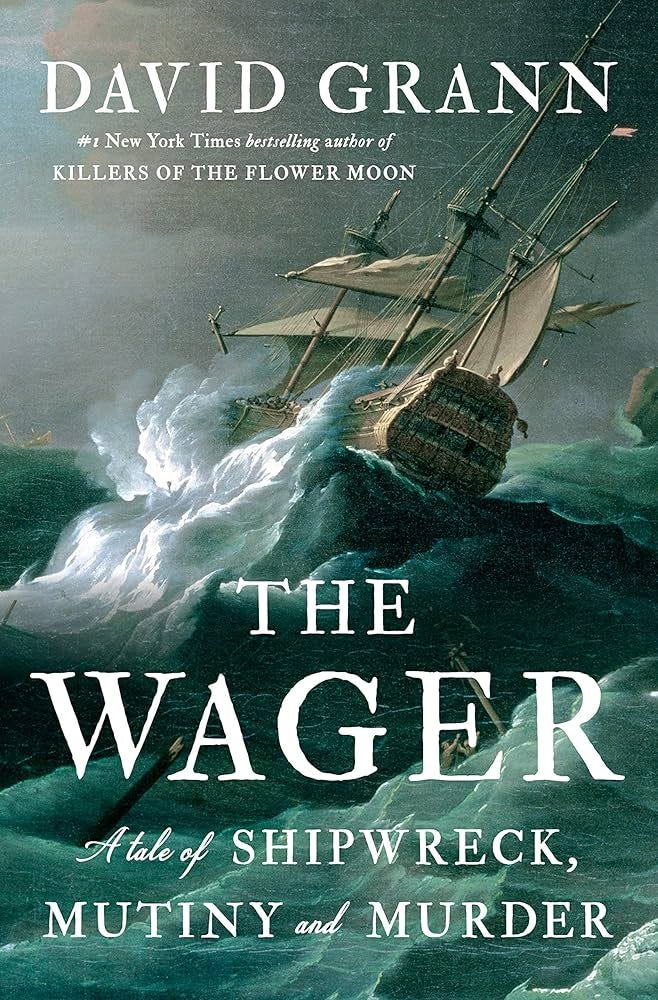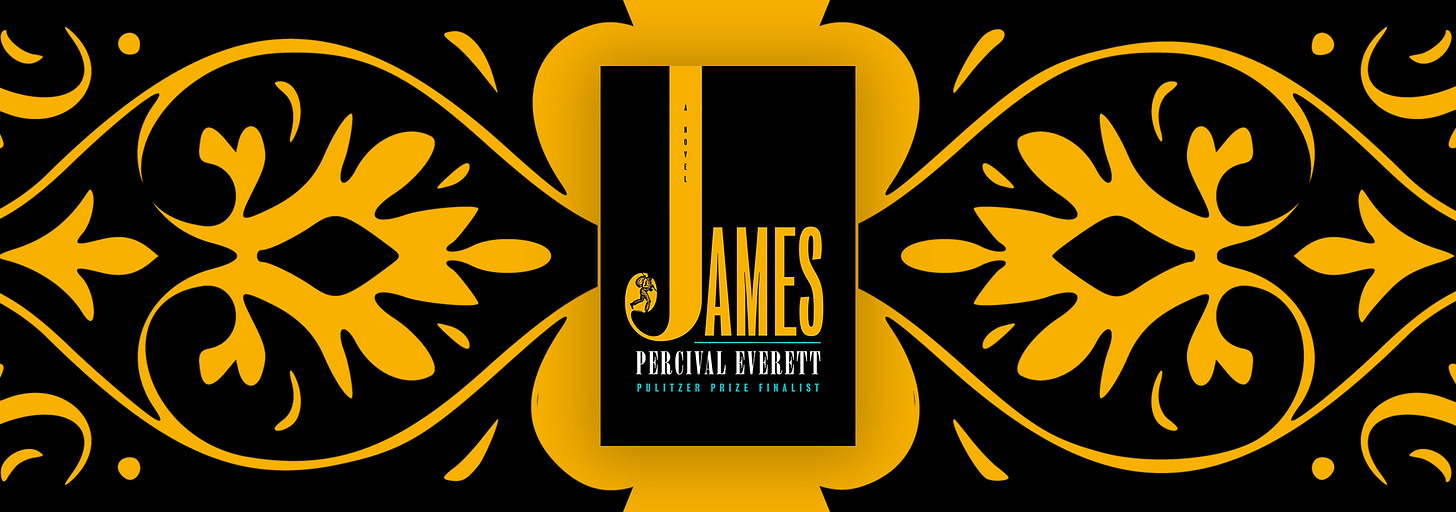I still read all my usual mainstays this year (Agatha Christie, Agatha Christie types, film critics) while dipping a bit more into the zeitgeist than I normally do. My reading diet has historically been more insulated from trendiness than the rest of my cultural consumption, but alas: I’m a sucker for buzz. And not for nothing, but some of the buzziest books I read this year were also some of the best—make of that what you will!
10. Miss May Does Not Exist: The Life and Work of Elaine May, Hollywood’s Hidden Genius - Carrie Courogen
The great irony of Elaine May’s refusal to take part in her own biographing is that it forced Carrie Courogen to take the Elaine May route: stubborn persistence. The great thing about this particular match of biographer and subject is that I think that came naturally to Courogen.
After all, no one else was going to chase down hundreds and hundreds of sources to sleuth together the history of an elusive auteur who downplayed that very history when she wasn’t busy actively hiding it behind credits not taken and questions not answered. And thank goodness Courogen did the work, because to read this story of Miss May’s life is nearly as insightful and entertaining as watching one of her movies. If it gets a little less interesting as it goes along, that’s largely a reflection of the unfair tapering of May’s late career by an industry that refused to fully accept her brilliance until it was too late. In looking at her with clear eyes, this book can’t help but testify to her genius — no honest examination ever could. Maybe Elaine will never read it, but here at last, she gets the flowers she so richly deserves.
9. Vineland - Thomas Pynchon
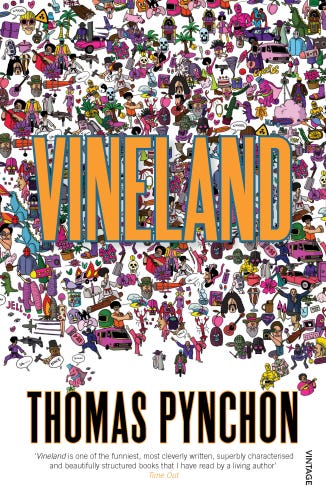
One of the hardest parts about reading anything by Pynchon is trying to explain what the book is about when someone asks. Hippies? Ninjas? The inevitable creep of fascism vs. the indomitable will to just keep trucking? He stuffs his books so full to the brim with characters, plots, and ideas that I’ve never been able to totally pin one of them down, if that’s even possible in the first place. In that way, reading him is more about surfing his avalanche of words than it is about drawing a perfect outline of a wave.
By that metric, this is far and away the most enjoyable Pynchon I’ve read/surfed, and not coincidentally the most straightforward (even if that’s like saying “the most red blue”). You still have to focus through every winding sentence and narrative diversion, and it still feels like an accomplishment every time you turn a page, but he hangs with a smaller batch of characters longer than usual, allowing them the time to develop real, human emotions within the big-picture farce. Not that the farce suffers; on the contrary, having characters that resemble people at least as much as they resemble Looney Tunes actually makes the cartoon hijinks funnier, which in turn makes the emotional moments hit harder. I’ve rarely felt so much while reading Pynchon, and I’ve rarely laughed so much while reading anyone.
8. Long Island Compromise - Taffy Brodesser-Akner
I never read Fleishman is in Trouble but I loved the show for its novelistic richness, so I had a feeling I’d enjoy whatever Taffy Brodesser-Akner wrote next. And I was right, even without knowing her next book would be the Jewish American answer to Jonathan Franzen’s Crossroads, and every bit as complex in its portraiture of a broken family.
In crafting an epic out of a rich father’s kidnapping and his wife and kids’ Sisyphean attempts to process (or outrun) that kidnapping, Brodesser-Akner touches on so many themes and ideas that it probably would’ve been impossible to tie a perfectly satisfying bow around all of them, but I do think the structure of the book—which spends roughly 100 pages with each family member before largely leaving them behind—stymies some of that coalescence. Unsurprisingly, the scenes where these relatives finally get to relate to one another prove the most thrilling, but there aren’t quite enough moments like that for my taste. Still, even without those convergences, her characterizations are more than rich enough to stand on their own, and she writes with a true novelist’s insight into the human condition, cutting through so much projection and deflection to get at some kind of truth. And as with Crossroads, I’ll let you get away with a lot if you simply arc your book about impossibly broken people toward impossible forgiveness.
7. Never Let Me Go - Kazuo Ishiguro
I’m glad I finally got around to this book, which treats its readers exactly how its central school treats its students: telling, but not telling. Ishiguro has such a knack for tiptoeing on the knife’s edge of revelation, giving us just enough through suggestion and allusion that any “reveals” feel more like affirmations of something we already subliminally knew. In this way, he’s able to always keep another, bigger mystery shimmering on the horizon while allowing our focus to remain rooted in the present, where slightly heightened situations stir up emotions so grounded and relatable that the situations end up feeling likewise. Loved this.
6. Intermezzo - Sally Rooney
My first Rooney, and I was taken at once with the surprisingly daring prose: one half of the story written prettily-if-plainly, the other half written in terse, impressionistic slips of language. Not only does it place you immediately into each character’s state of mind, but in conjunction with Rooney’s omission of quotation marks, it blurs the lines between in and out. Is this dialogue? Internal monologue? Narration? Poetry? Yes, and. It’s a gambit that might’ve felt cheap or sloppy in lesser hands, but here it feels perfectly in sync with the emotional messiness of these characters’ lives.
The book takes its time in painting the full portrait of that messiness, but the intersecting payoff is well worth the wait, honoring the unending complexities of life and love and grief by finally looking them head on, bleary-eyed but hopeful. It’s a novel about broken people—aren’t they all?—that doesn’t so much redeem them as it nudges them toward wanting to redeem themselves. “God bless this mess,” in so many words.
5. The Problem of the Wire Cage - John Dickson Carr
A Golden Age detective novel that’s exciting not just because it offers a fascinating puzzle, cleverly solved, but because it introduces a new old mystery author who can hold a candle to Agatha. Even better, he isn’t just copying the queen but working with a flavorful style of his own, still featuring a Poirot-esque super detective but only marginally — largely, we stay with the rich (and richly drawn) suspects, all of whom are poked and prodded by Carr’s deft and surprisingly funny prose.
It’s a real treat, and the insightful foreword by Rian Johnson makes perfect sense: there’s a clear structural precursor here to Marta’s plot from Knives Out, and Johnson recently referenced Carr when talking about the upcoming Knives Out 3. I’m excited to keep benefitting from one genius of the form learning from another!
4. The Wes Anderson Collection: The French Dispatch - Matt Zoller Seitz
The latest in Matt Zoller Seitz’s ongoing companion series on the films of Wes Anderson is his greatest yet. Far beyond a delectable coffee table prop (though it is that), this is a painstakingly researched BTS account of The French Dispatch’s shoot, an artful exploration of its themes, and—above all—a thoroughly convincing ode to Anderson’s polymathic genius. Seitz and his collaborators don’t approach their examinations of the film’s many aspects and techniques seeking to prove Anderson’s brilliance, it just asserts itself honestly through their awed reports, each one speaking to it in distinct but complementary ways. By taking us through each section of the movie and each element of its creation—from script to score—the auteur’s hand is made abundantly clear in aggregate, generously but virtuosically conducting his symphony of gifted artists en route to yet another masterpiece. I hope he never stops making movies, and I hope Seitz never stops writing books this terrific about them.
3. The Wager - David Grann
I don’t always have the historical curiosity for non-fiction, but come on. Peering impossibly back through time via moldy logbooks and conflicting testimonies, David Grann writes with an almost omniscient lucidity, capturing some of the most extreme experiences in (barely) recorded history as clearly and captivatingly as if he were stranded right there along with the Wager’s crew. This has it all—naval battles, shipwrecks, murders, mutinies, native civilizations, legal dramas, psychological studies, imperial overreaches—and above it all: Grann’s all-seeing narration, as light in touch as it is profound in observation.
2. Demon Copperhead - Barbara Kingsolver
“A good story doesn’t just copy life, it pushes back on it,” says Demon, and there you go. Barbara Kingsolver is uninterested in copying anything about the way Appalachian life has been told, resolved instead to render its pain and pleasures and pain in heart-aching three-dimension, straight from the mouth of an instantly iconic narrator. Nothing about this story is cute except maybe its ending, but by then it’s been to hell, and hell, and hell, and hell, and finally back, having earned any amount of sweetness its characters can still scrape from the world. Which is not to sound defeatist; if anything, Kingsolver is just as assured that our world has been set up to let down the people living beyond its sightline as she is that those people have the fortitude to rise above, if given the slightest chance. With this remarkable book, she pleads with somebody, anybody, to give them one.
1. James - Percival Everett
As sometimes happens, the top slot in my ranking was the easiest to fill. Nothing about Everett’s take on Huck Finn is easy—beyond a “slave story,” this is a story of one slave that convicts us of how “slave stories” existed in the margins of all of our classic American tales, even those that pretended otherwise—but Everett makes it seem effortless, writing with the same quiet intelligence that defines his hero. In shifting the narrative focus from Huck to James, he doesn’t quite reinterpret the original novel so much as he weaves an ingenious countermelody around one of America’s best-known tunes, first recontextualizing the beats we know and then branching off into a soulful song of his own. The tone may be fiery, but the message is still one of hard-won hope. What other kind is there?
Honorable Mentions
City of Thieves - David Benioff
Exactly what you want out of a good, hard-working, 250-page novel: well-defined characters, a straightforwardly entertaining plot, and plainly elegant prose with just enough poetic bang for your buck. Two Russian survivors have to find a dozen eggs during the German siege of Leningrad or they’ll be killed. Sold. And I’ll be darned if those two crazy kids don’t come of age a little bit along the way!
(If you’re thinking, “There’s no way one of the guys responsible for the last season of Game of Thrones wrote a good novel,” you’d—surprisingly—be wrong!)
The Devotion of Suspect X - Keigo Higashino
Like Higashino’s Journey Under the Midnight Sun, this is another structurally innovative mystery, using the pieces of a classic whodunnit (or howdunnit, in this case) to build something new. A slow burn, but worth the payoff.
The Song of Achilles - Madeline Miller
Among other things, Miller takes a well-known myth and reshapes it into an account of what it might be like to marry a famous athlete, beholden as much to their legacy as to their partner. In fleshing out Homer’s tale, she grounds the loftiness of legend in the dirt of human experience, enriching both ends of that spectrum in the process. Not nearly as good as Circe, but that only means she’s getting better.
Titus Groane - Mervyn Peake
A “fantasy” novel where the most fantastical element is the language itself: gorgeous words on gorgeous words describing eccentric, often grotesque characters navigating a labyrinthine castle and its archaic rules. It’s really unlike anything I’ve ever read (and much funnier than you’d expect), but it’s definitely a case of beautiful language buttressing a less-than-thrilling narrative (albeit in service of some interesting ideas). That said, punctuating a bunch of leisurely talk about rituals and traditions are a moonlit knife duel between rival lovers and a spiderwebbed brawl between rival castle servants, so Peake does know how to bring the juice when it's time. Read for another lovely edition of Fran Magazine book club!
The Crying of Lot 49 - Thomas Pynchon
This brief novella is a great entry point for the Pynchon-curious reader who isn’t sure if they want to dive right into the deep end. And while being largely representative of his writing, it also serves as a fascinating counterpoint to Gravity’s Rainbow, whose chaotic sprawl is kind of the point. Here, the sprawl is truncated but the chaos is not—just whittled down into 152 pages of labyrinthine paranoia. I’ve never read something so short with such ambitious prose, sometimes rolling hilariously on at madcap speeds and other times pausing for a verbose, elaborate aside. Not sure it coheres quite how I’d want it to, but it’s so quick that you don’t have time to care.
The Delivery - Peter Mendelsund
A simple story about a bike-borne delivery boy, told in a progressively more experimental manner. I know Peter Mendelsund from his fascinating What We See When We Read, an exploration of how words can stir and guide our visual imagination, so it’s no surprise that both of his novels have taken that idea as a challenge, unspooling their language in probing, thoughtful ways. Here—apart from precise, evocative word choice—that means experiencing a story through staccato bursts of language (one-sentence and even one-word paragraphs for much of its first half) that eventually become a legato flurry (a pages-long sentence to end the book), interspersed with an ambiguous narrative voice that drops in personal memories that mirror the protagonist’s journey. I don’t totally know what it all adds up to, but it’s a fun journey to take, especially as a biking safari of literature’s cutting edge.
The Big Four - Agatha Christie
Christie was always innovating even within her established structures, but it’s exciting to read a Poirot book that completely abandons the usual framework. This one takes the mini mysteries of an anthology like Poirot Investigates and serializes them into an overarching narrative that pits Poirot against a secret cabal of Bond villains in the closest thing to a Mission: Impossible plot Christie ever wrote. Easily the most outlandish thing I’ve read from her, but fun and clever in its own way, and hey—it’s nice to see the queen let her hair down!
Self-Promotion Corner: Broad Sound Volume 2
I couldn’t in good faith include this in my rankings, but I’d be remiss not to include the book most dear to my heart this year: the one I’m in! Writer/editor Ethan Warren published the second volume of his Broad Sound Magazine this year, which invites writers of all stripes to muse on anything their heart desires, so long as it could arguably be considered “arts and culture.” For me, that meant lovingly, long-windedly exploring my love for parkour YouTube videos. For the other (more) talented writers, that meant everything from Shakespeare to Creed to Looney Tunes. It’s a lovely read if I do say so myself—and you can buy it in digital or print (!) at the link above.


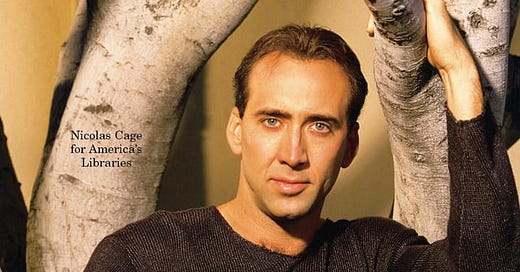



![Miss May Does Not Exist: The Life and Work of Elaine May, Hollywood’s Hidden Genius [Book] Miss May Does Not Exist: The Life and Work of Elaine May, Hollywood’s Hidden Genius [Book]](https://substackcdn.com/image/fetch/$s_!CVBb!,w_1456,c_limit,f_auto,q_auto:good,fl_progressive:steep/https%3A%2F%2Fsubstack-post-media.s3.amazonaws.com%2Fpublic%2Fimages%2F3ca24ca9-a942-4802-906f-edc893b310bb_1682x2560.jpeg)
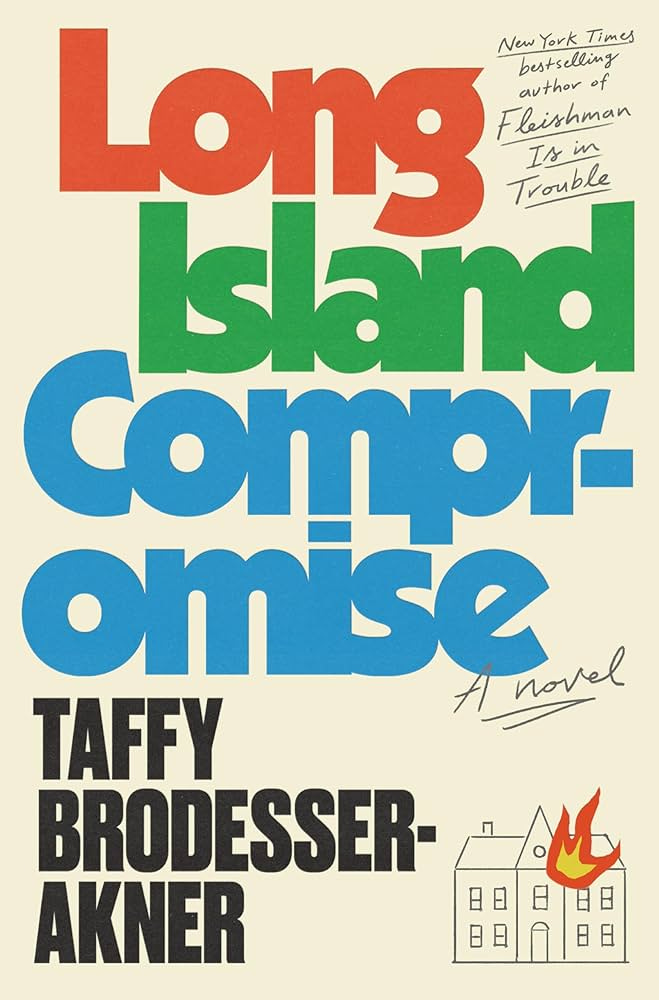
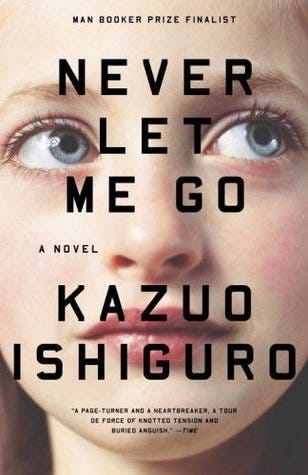
![Intermezzo: A Novel [Book] Intermezzo: A Novel [Book]](https://substackcdn.com/image/fetch/$s_!tz0W!,w_1456,c_limit,f_auto,q_auto:good,fl_progressive:steep/https%3A%2F%2Fsubstack-post-media.s3.amazonaws.com%2Fpublic%2Fimages%2F78b49431-e978-4714-a737-6cf62a9f9dd8_1650x2531.jpeg)
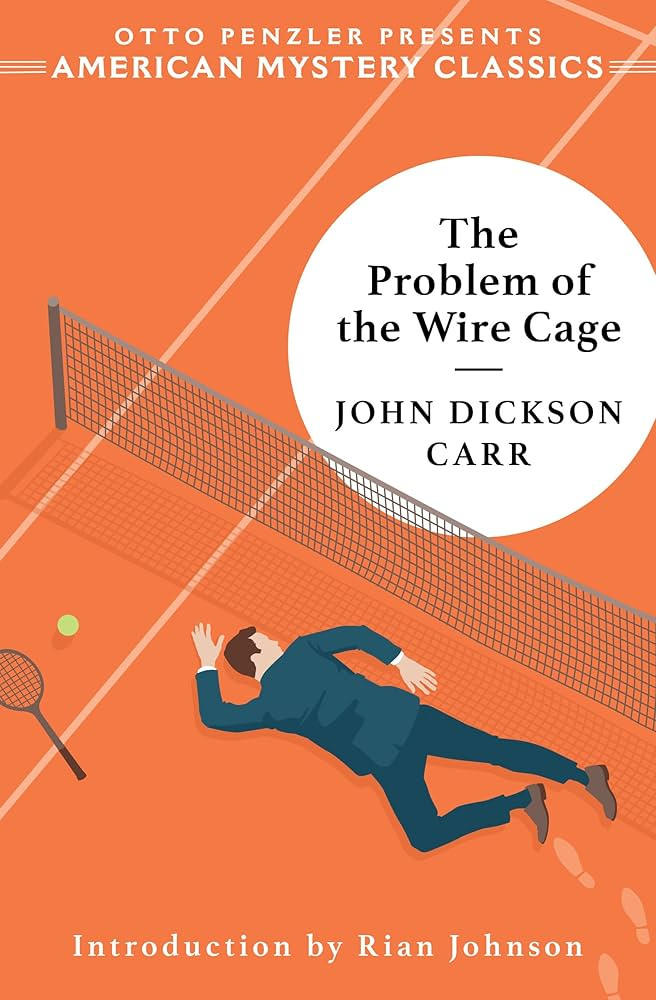
![The Wes Anderson Collection: the French Dispatch [Book] The Wes Anderson Collection: the French Dispatch [Book]](https://substackcdn.com/image/fetch/$s_!ATmL!,w_1456,c_limit,f_auto,q_auto:good,fl_progressive:steep/https%3A%2F%2Fsubstack-post-media.s3.amazonaws.com%2Fpublic%2Fimages%2F6a01c7b1-ae6c-4d17-91b5-0f9b343aaede_1030x1241.jpeg)
